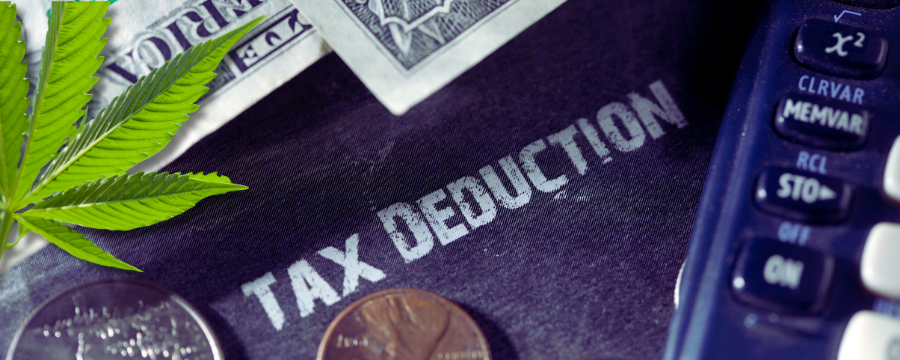- Texas Medical Cannabis Dispensaries vs Hemp Stores
- 5 Easy Steps to Fill Your Prescription
- Decoding Texas Cannabis Ratios: 20:1, 1:1, 0:1…
- Dosing & Product Education
- Texas CUP News & Legislation
- Conditions & Symptom Relief
- Practice Updates & Patient Stories
- Caregivers & Family Support
- Compliance & Legal FAQs
- Texas Medical Cannabis Guidebook 📚
- Complete Learning Library 📚
Tax Season & Medical Expenses: Can You Deduct Your Low-THC Cannabis

👀 Tax Time Is Stressful Enough—What About Cannabis Receipts?
Every spring, patients ask the same question:
“Can I write off my low-THC medication as a medical expense?”
It’s a fair concern. Medical cannabis can be pricey, and insurance doesn’t cover it. With no state income tax, federal deductions matter even more. Yet most people don’t know where cannabis fits on Schedule A, or if it fits at all.
💡 Yes, It May Be Deductible … but There Are Caveats
The IRS allows you to deduct qualified unreimbursed medical expenses that exceed 7.5 % of your adjusted gross income (AGI) when you itemize. IRS Publication 502 defines deductible costs as those that:
- Diagnose, mitigate, treat, or prevent disease, and
- Are lawful under federal or state law.
Because low-THC cannabis is treated as a controlled substance federally, its deductibility isn’t explicitly named in Publication 502. However, recent tax-court opinions and professional guidance suggest that state-legal medical cannabis can qualify when:
- Prescribed by a physician (Floweret MD meets this standard).
- Dispensed through a state-regulated program (Texas CUP).
- Documented with legitimate medical receipts.
Tax pros increasingly treat Texas CUP purchases like any other out-of-pocket prescription—but the IRS hasn’t issued a black-and-white ruling, so documentation and professional advice are critical.
✅ Patients Who Track Costs May Lower Their Tax Bill
Patients who saved invoices, prescription letters, and CURT statements have successfully:
- Crossed the 7.5 % AGI threshold and reduced taxable income.
- Bundled cannabis costs with travel to appointments, lab fees, and other qualifying expenses to maximize deductions.
- Demonstrated good-faith compliance if the IRS requests substantiation.
Even if you don’t itemize this year, keeping organized records now simplifies future returns—and shows insurers or employers the legitimate medical nature of your treatment.
💝 Four Action Steps Before You File
| Step | What to Do | Why It Matters |
|---|---|---|
| 1. Collect Every Receipt | Download your CURT purchase history & save Floweret MD invoices. | Proof of medical necessity & cost. |
| 2. Track Related Mileage | Log round-trip miles to dispensaries or doctor visits. | Transportation is also deductible. |
| 3. Total All Unreimbursed Medical Costs | Include dental, vision, therapy, etc.—not just cannabis. | You only benefit after 7.5 % of AGI. |
| 4. Talk to a Tax Professional | Share Publication 502 & your receipts. | Professional guidance protects you in case of audit. |
Pro Tip: If you normally take the standard deduction, run the numbers anyway—years with surgeries or new prescriptions often tip you into itemizing territory.
📌 Final Thought
Low-THC medicine is more than a line item—it’s an investment in your health. With airtight documentation and expert advice, you may be able to recoup a portion of those costs at tax time. Don’t leave money on the table simply because the rules feel fuzzy.
💬 Need a Receipt Summary or Letter of Medical Necessity?
Floweret MD can provide year-end statements tailored for tax documentation.
➡️ Request your receipt bundle or ask during your next telehealth visit—so you head into tax season prepared, not panicked.
This content is educational and not medical advice. Consult a qualified healthcare professional before starting, changing, or stopping any cannabis or other treatment.
📚 References
- IRS Publication 502 (2024) – Medical and Dental Expenses
https://www.irs.gov/pub/irs-pdf/p502.pdf - Internal Revenue Code §213(a) – Medical Expense Deductions
https://www.law.cornell.edu/uscode/text/26/213 - Texas Department of Public Safety – Compassionate Use Program
https://www.dps.texas.gov/section/compassionate-use-program - Cohn, J. (2022). “Tax Treatment of State-Legal Cannabis Purchases.” Journal of Tax Practice & Procedure.


